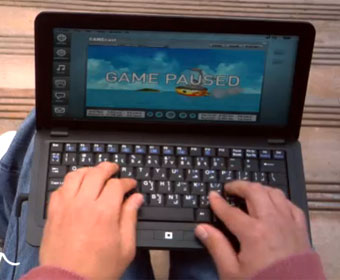As the explosive growth in mobile broadband has been partially stimulated by the burgeoning netbook or ultra mobile PC market, vendors are falling over themselves to find the next niche and lucrative mobile gadget.
May 29, 2009

As the explosive growth in mobile broadband has been partially stimulated by the burgeoning netbook or ultra mobile PC market, vendors are keen to find the next niche and lucrative mobile gadget.
And US chip shop Qualcomm reckons it’s hit upon the next big thing by creating a whole new category of device that falls between the high end smartphone and the netbook.
The “smartbook” as senior vice president of marketing and product development at Qualcomm, Luis Pineda, dubbed the device type, promises “the smartphone experience in a larger form factor.”
Telecoms.com is struggling to understand this one, it all sounds a bit too much like Palm’s ill-fated Foleo strategy. There is a wide range of netbooks available for under the £300 mark, many of which boast a full fledged operating system like Linux or Windows XP, integrated wifi and 3G, and a highly portable form factor. As a result, the opportunities for a ‘smartbook’ look doubtful.
Nevertheless, Pineda said that around 15 companies are on board with the concept and there are around 30 such devices in development. The first of these will hit the shelves towards the end of 2009.
Qualcomm would not name names, but Acer, Compal, Inventec, Samsung, Asus, Foxconn, LG, Toshiba, C-motech, HTC, Quanta and Wistron are all known users of the Qualcomm Snapdragon platform, which forms the foundation of the smartbook platform.
“Snapdragon is a key chipset for computing products,” said Pineda, “and we’re now looking at new devices beyond the cellphone, with a larger display, full keyboard, and an enhanced user experience.”
Snapdragon, as a single chip solution combining GPS, multimedia, the processor, wifi and 3G on one chip, promises to make smartbooks lighter, thinner, cheaper and give them a longer battery life. Pineda said voice was likely to be a feature of some of the new devices, and the focus would be on Linux-based operating systems, although the smartbook would be “different from the netbook as it uses the same software setup as smartphones in larger form factor,” he said.
About the Author(s)
You May Also Like








.png?width=300&auto=webp&quality=80&disable=upscale)


_1.jpg?width=300&auto=webp&quality=80&disable=upscale)


.png?width=800&auto=webp&quality=80&disable=upscale)